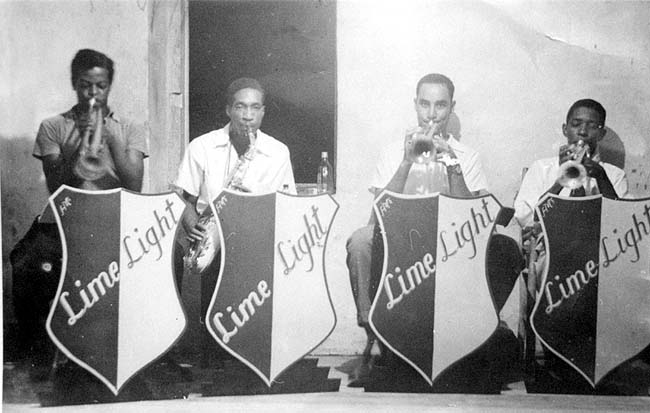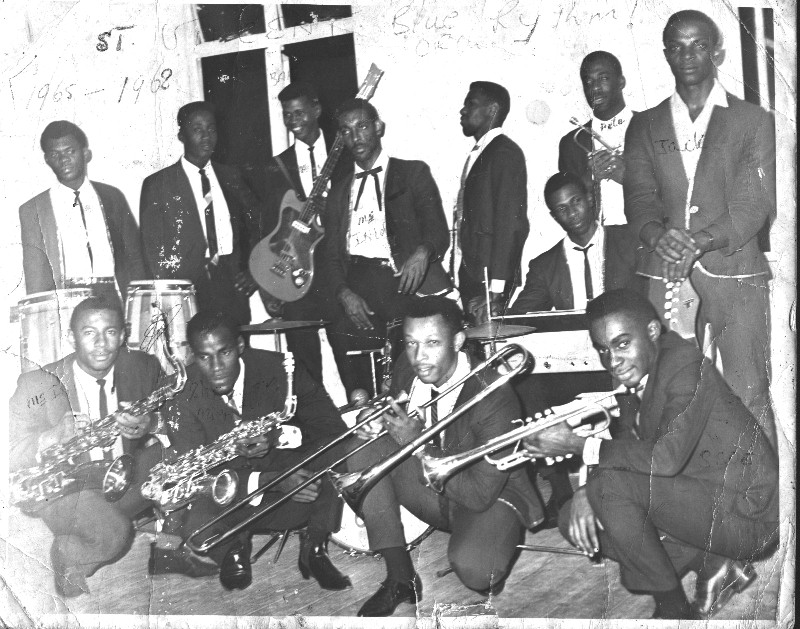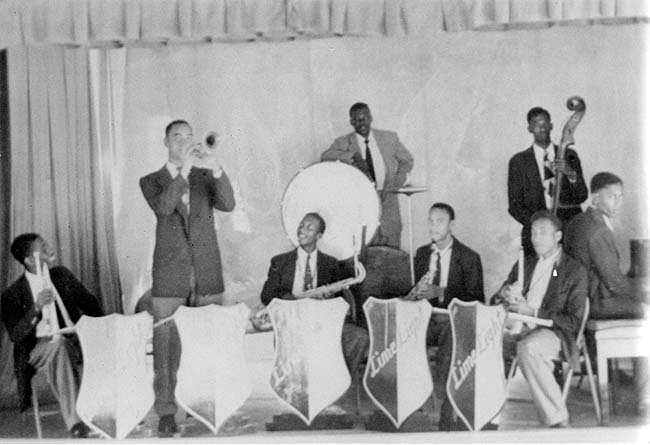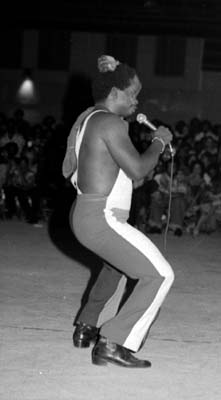PORT OF SPAIN, Mar 5 (IPS) -- The Mighty Sparrow has come a long way since
the early days of calypso, when signs outside popular restaurants in
Trinidad often read: "No entry to dogs and calypsonians."
Arguably the world's best-known calypsonian, Sparrow was recently one of
three Caribbean nationals given the region's highest award, the Order of
the Caribbean, for outstanding contribution to the development of the
region.
Caribbean Community (CARICOM) leaders gave Sparrow the award during
their annual inter-sessional summit in Barbados in early February.
"I thought of mentioning, why couldn't we have something like this
before, so that I would be a little bit younger and enjoy it a little bit
more," he joked with reporters after accepting the award. "But they say
good things come to those who wait."
Sparrow now joins the likes of Nobel laureate Derek Walcott, former
Belize Prime Minister George Price, Director of the Pan-American Health
Organization Dr. George Alleyne, the late Jamaican Prime Minister Michael
Manley, and the late Barbados Governor-General Nita Barrow, who have also
been honored for their contribution to regional development.
It is not the first award the veteran calypsonian has received. In 1987,
the University of the West Indies gave him an honorary doctorate for his
contribution to West Indian culture. Last year, the city of Baltimore made
him an honorary citizen.
Born Slinger Francisco on July 9, 1935 in Grenada, he emigrated with his
mother to Trinidad and Tobago in 1937, to join his father who had travelled
to Port of Spain several months earlier.
Sparrow's dominance of calypso music began in the 1950s, and over the
past 45 years he was won almost every title associated with the music,
including "Calypso King of the World." He has been crowned "Calypso
Monarch" a record 11 times in Trinidad and Tobago, considered the Mecca of
Calypso music.
He first won the calypso crown in 1956 with the song "Jean and Dinah,"
which celebrated the departure of U.S. troops from the island. It ushered
in a newly politicized form of calypso that, in conjunction with the
People's National Movement (PNM), facilitated Trinidad's independence from
Britain in 1962.
After he was presented with the Caribbean Order, Sparrow broke into an
impromptu rendition of a song he said supported the region's move towards
its own Judicial Appeals Court as well as the Single Market and Economy
(CSME).
In the notes accompanying his Caribbean Order, it was pointed out that
Sparrow "was responsible for changing the structure of calypso from the
restrictive 12-bar music idiom to an internationally acceptable form of
letting the lyrics dictate the idiom and the notes."
Calypso was the Caribbean's best-known music from the 1940s until the
1970s, when Jamaican reggae, spurred by the international success of singer
Bob Marley, began to make inroads inside and outside the region.
Sparrow recalls singing at weddings as a means of getting exposure. "I
used to find myself in weddings sometimes without being invited. I would
push myself up front and call out loud to my friend so people would know I
am there," he said.
Popular throughout the West Indies, calypso is believed by some industry
experts to be a corruption of a West African word "kaiso," a cry of
encouragement.
"It was a means where men proved their manhood and also where some women
proved their womanhood," said Gordon Rohler, a professor at the University
of the West Indies and an expert on the calypso art form.
The outside world embraced the music when U.S. entertainer Harry
Belafonte released "Calypso" in 1956, which became the first album ever to
sell more than a million copies.
Earlier calypso-influenced U.S. hits included the Andrews Sisters' cover
of Trinidadian calypsonian Lord Invader's song "Rum and Coca-Cola."
Sparrow has produced 70 albums containing songs that range from the
humorous to the thought-provoking and from the bawdy to the bitingly
satirical. He is now working on a 600-song compilation called "Millennium
Series," an anthology of his entire music career, during which he produced
an average of 10 new songs a year.
"He is threatening the Godfather of Soul, James Brown, for the title of
the hardest-working man in show business," says Peter Ray Blood, the arts
and entertainment editor of the Trinidad Guardian newspaper, of Sparrow's
hectic schedule.
He gives three concerts a week in North America, has his own two-hour
radio program in Florida and two New York radio stations have also
approached him to syndicate his Sunday-morning program.
Last year, the United Nations Development Program (UNDP) engaged him to
do a concert to motivate the population in Suriname to vote in the May 25
elections there.
"The best way to get a message to the people is through a cultural
icon," says Hans Geiser, UNDP's resident representative to Trinidad and
Tobago, Aruba, the Netherlands Antilles and Suriname.
The concert was part of a European Union/UNDP initiative to raise public
awareness and participation in the polls. Geiser said that the concerts
were well-attended and that in between his exuberant calypsos, Sparrow
urged his audience to perform their civic duty on polling day.
As Trinidad and Tobago observes its annual carnival celebrations, the
National Cultural Committee (NCC) and the government have dubbed the season
"Sparrow Carnival" in recognition of the award and his contribution to
culture.




